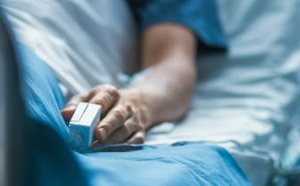ICMR-NIRRCH to offer free testing, counselling to tackle rare diseases
By IANS | Updated: February 28, 2024 14:45 IST2024-02-28T14:43:06+5:302024-02-28T14:45:06+5:30
Mumbai, Feb 28 In a bid to counter the burden of rare diseases in the country, ICMR’s National ...

ICMR-NIRRCH to offer free testing, counselling to tackle rare diseases
Mumbai, Feb 28 In a bid to counter the burden of rare diseases in the country, ICMR’s National Institute for Research in Reproductive and Child Health (ICMR-NIRRCH) here on Wednesday announced to offer free genetic testing and counselling services.
Rare diseases are typically chronic and progressive medical conditions that pose life-threatening risks to those affected. Out of the 350 million patients suffering from rare disease globally, India alone is home to approximately 72-96 million patients, according to the Ministry of Health and Family Welfare (MoHFW).
The new Genetic Research Centre (GRC) will assess clinically abnormal cases of rare paediatric diseases as well as track origins of undiagnosed genetic disorders. It also aims to facilitate timely therapeutic interventions and provide critical support for both patients and their families.
The centre also holds approval under Pre-Conception and Pre-Natal Diagnostic Techniques Act, 1994 (PCPNDT) to conduct genetic counselling and testing.
While the GRC is currently offering its services in Maharashtra, people with rare diseases from other parts of the country can avail the services, ICMR-NIRRCH said.
“Strengthening access to genetic testing and counselling for rare diseases will pave the way for their early diagnosis and timely intervention, helping improve the health and wellbeing of some of the most vulnerable sections of society. This is a revolutionary step that can transform several lives, especially young lives in the country,” said Dr. Geetanjali Sachdeva, Director, ICMR-NIRRCH, in a statement.
With no approved treatment for 95 per cent of rare diseases, the diagnosis of rare diseases is challenging. While early genetic testing is key, diagnosis is conducted through a distinctive blend of clinical and laboratory methods, including cytogenetic, biochemical, and molecular approaches.
At present, the centre is providing its services to around 570 families yearly, covering genetic conditions during infancy, childhood, and adolescence, as well as for reproductive difficulties faced by couples.
Disclaimer: This post has been auto-published from an agency feed without any modifications to the text and has not been reviewed by an editor
Open in app